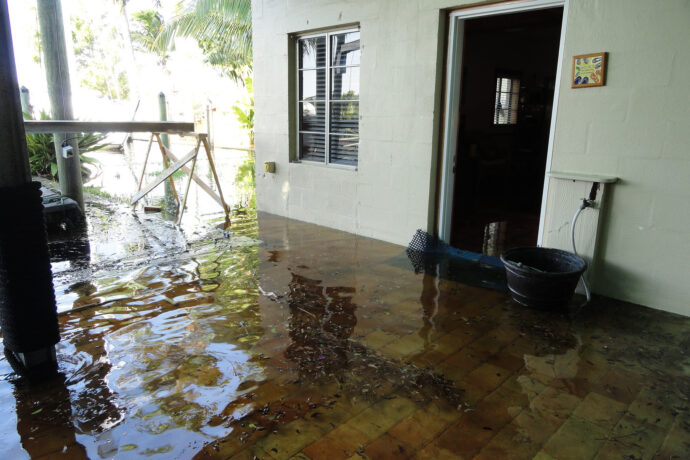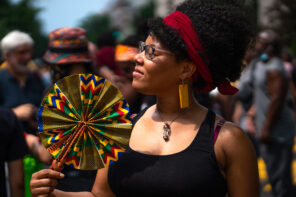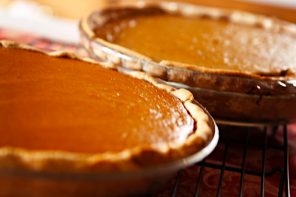Much of Louisiana is under water.
Last Friday, I called my mom to check in as the summer storm began to saturate the soil and the rivers began to rise. Her house sits right outside of Baton Rouge, in Denham Springs, and she assured me that she was keeping a close eye as the waters rose in her area.
The possibility of destruction has a strange way of inspiring reflection on personal property. On the phone, I told my mom, “I love your house. It is so perfect for you.” And I do. I love her house not because I grew up there (I did not) or because I’ve spent much time there (I’ve only visited once) or because of anything to do with the way it looks. I love her house because of what it stands for. It’s a symbol of her freedom. Freedom from every man who raised a hand to her, mistreated her, or manipulated her with money; freedom from days of “shopping” in our grandmother’s pantry and from uncertainty about where she would find money for the next rent or mortgage payment; freedom to be alone, to direct her own life, and to define herself.
Her house is also a repository of our family’s history. On its walls hang pictures of my grandmother playing trumpet in the high school marching band, of my grandfather mixing drinks at a 1960s dinner party, of my sister’s and my first communion, and of our many relatives, long since dead, whose names I can no longer keep track of. In the dining room sits my great-grandparents’ table, having weathered countless birthday celebrations and holiday meals. And here is where my great-grandaunt’s bookshelf stands, where I store the books I can’t quite justify letting go of.
Houses may be made of brick, timber, dry wall, and nails; but, along with money, we invest in them some of our deepest hopes and most profound vulnerabilities—especially when we’re poor, especially when every square foot feels hard-earned. The tens of thousands of people affected by the floods in Louisiana are, in large part, hard-working poor and working-class people. So hard-working, in fact, that many took it upon themselves to rescue friends and strangers from the rising waters, to open their homes to those made homeless, and to volunteer at shelters and places of worship. Some may say that Mother Nature does not discriminate. That may be true, but it’s also true that people of means have a much greater capacity to withstand the havoc wreaked by disasters, natural or otherwise.
Many have begun to criticize the lack of coverage or attention to the floods in Louisiana. These are 1,000-year floods, covering an area larger than Delaware, affecting more than 40,000 homes. This is sure to be an ongoing disaster—triggering transportation, housing, public health, and financial crises. So, many ask: “Where is the media coverage, the public awareness, the national attention?”
In launching these critiques, some have contrasted the coverage of the flood with wall-to-wall coverage of the Olympics, the ongoing presidential sideshow, and the riots in Milwaukee. Having your suffering ignored or cast aside only intensifies the pain you feel. And, yet, comparing one’s suffering with the suffering of others, calculating them according to hierarchies of pain, reinforces the logic of oppression. In other words, the standards that determine what belongs on the news (so-called “news values”) are deeply rooted in oppressive ideologies—regional biases, financial capital, racism, classism, sexism, and more—which constantly rank whose lives (and deaths) are more valuable, more “newsworthy,” more profitable for mass distribution.
Comparing the newsworthiness of our suffering to that of others is the precise method by which the news devalues the lives of black, brown, poor, immigrant, transgender, and queer people.
I am not, in other words, only frustrated by the lack of national news coverage or public awareness of the floods in Louisiana. I am frustrated by the lack of coverage and awareness of how the floods in Louisiana do now and will continue to disproportionately affect poor people, immigrants, people of color, people affected by de facto segregation, homeless people, and queer people. I am frustrated by the short attention span, narrow discourse, and lack of critical social space that propels our cultural imagination through a carousel of tragedy—without offering space or time to process or to identify root causes of the trauma paraded before us.
This may be, in part, about news coverage, but it’s about much more than that. It’s also about creating an opportunity to sit with the magnitude of our pain, to nurture that pain into empathy, and to transform that empathy into power and solidarity—putting our hearts and lives on the line to find creative ways to address systems that construct hierarchies of oppression, make pain invisible, and compound suffering.
Once the water levels recede there will be mildew, endless piles of paperwork, jambalaya fundraisers, innumerable hours and countless dollars spent reassembling now-waterlogged lives. The news crews will be long gone by then, chasing someone else’s pain. Some of the stories they will miss are those with the deepest meaning: the next Thanksgiving dinner at my great-grandparents’ table, communities coming together to help those who don’t look or think or believe as they do, hours of hard labor and simple acts of hospitality extended to those left without homes.
I hope these will not be the only stories the media will miss. I hope there will also be stories of renewed awakening and commitment to the liberation of all people; stories of Louisiana finding ways to rebuild that don’t compound its histories of racism, classism, sexism, and heterosexism; stories of people joining together to address systemic injustice; stories of a recovery where no one is left behind.





